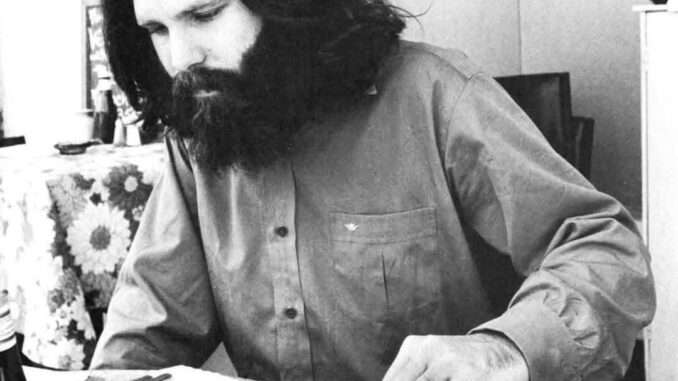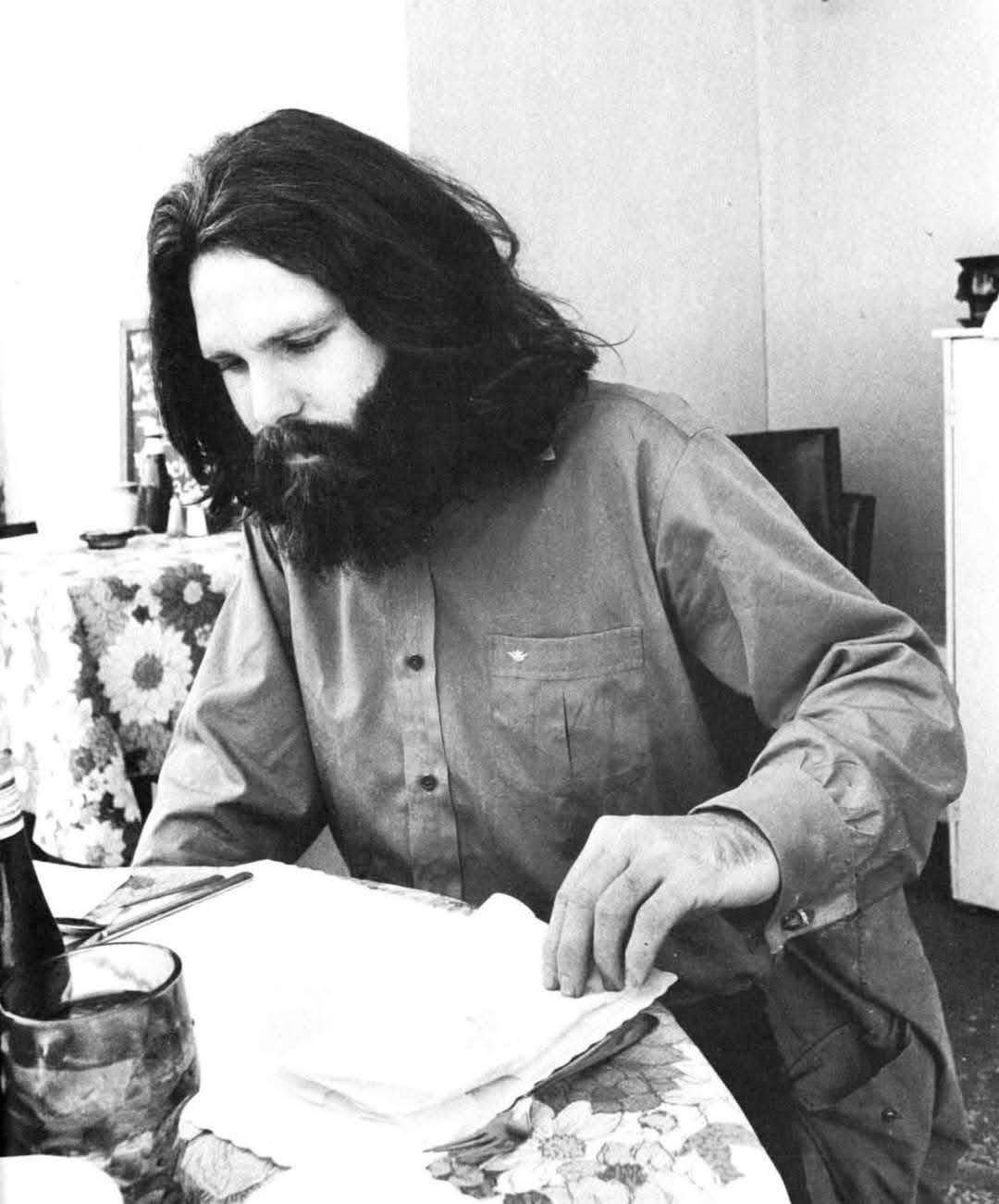
In late 1970, as the turbulence of the decade reached its final crescendo, Bob Courish of the *Los Angeles Free Press* sat down with Jim Morrison for what would become one of the most revealing interviews of the Doors frontman’s life. Published on January 15, 1971 under the striking title **“The Lizard King Reforms,”** Courish’s article dismantled years of mythmaking and exposed a Morrison far removed from the leather-wrapped wildman the public believed they knew.
Courish arrived prepared for chaos. In his own words, he expected to meet an “alcoholic, drug-crazed, megalomaniacal, slur-speech exhibitionist” — the same untamed icon who had once performed wearing little more than leather pants and a daredevil grin. Courish combed through Morrison’s poetry collections *The Lords*, *The New Creatures*, and *An American Prayer*, revisited the notorious *Rolling Stone* interview, and dug through four years of press clippings documenting Morrison’s transformation from poet-student to rock deity.
But what he found was nothing like the myth.
A Morrison Stripped of Persona
When Courish sat down across from Jim Morrison in late 1970, the shock was immediate. Morrison was not draped in snakeskin, leather, or rebellion. His hair was trimmed, his beard thick and natural, and his expression calm — even introspective. The Lizard King of legend had softened into something far more human.
“He isn’t wearing snakeskin or leather,” Courish wrote with visible disbelief. “He has a beer with lunch and a drink before and after.”
Not the debauched excess one would expect — just a man enjoying simple rituals, stripped of the theatrics that once defined him.
The Morrison who spoke that day was sober-minded, articulate, and self-aware. The wild-eyed performer had transformed into a man grappling with age, legal battles, artistic evolution, and the heavy mythology that had grown around him.
A Mind Turned Toward Cinema and Clarity
One of the clearest revelations from Courish’s interview was Morrison’s shifting passion. Though the world still saw him as a rock god, Jim himself was drifting away from the music scene.
“He is more anxious to talk about films than rock music,” Courish noted. Morrison admitted he barely listened to rock anymore — a confession almost unimaginable for one of its most magnetic figures.
Morrison had always been drawn to film, even before the Doors. By 1970, that interest had evolved into a desire to direct, produce, and expand into visual storytelling. For perhaps the first time publicly, he sounded like someone preparing to leave the stage behind.
Confronting His Myth — and His Mistakes
But Morrison wasn’t only reflecting on art — he wanted to correct the myths and misunderstandings surrounding his life. His trials in recent years, ranging from the Miami obscenity charges to bizarre accusations such as plane hijacking, weighed heavily on him.
“He is anxious to get the details of his life straight,” Courish wrote, noting Morrison’s frustration with how the media had twisted events and transformed him into a symbol rather than a man.
The interview captured Morrison’s awareness that he had lost something along the way. Fame, controversy, and self-destruction had eroded the boyish idealism he once radiated.
“With age, trials and tribulations,” Courish observed, “had come a loss of naivety.”
This line stands as one of the most poignant assessments of Morrison ever published. It acknowledges the emotional cost of his meteoric rise — and the heavy shadows that fame had cast over him by 1970.
A Man Caught Between Worlds
Courish described Morrison as “his own archer’s arrow,” traveling through time and space with a surprising degree of clarity about his past and an almost mystical intuition about his future. He was no longer the reckless frontman who dared the world to watch him fall. Instead, he was contemplative, restrained, and quietly searching for renewal.
“The Lizard King Reforms” remains one of Morrison’s most important interviews because it captured him during a rare moment of transition — somewhere between rock immortality and human vulnerability.
Months later, Morrison would move to Paris. Six months after that, he would be gone.
But through Courish’s interview, the world glimpsed Jim Morrison not as a myth, but as a man — introspective, wounded, evolving, and on the cusp of profound transformation.
Leave a Reply